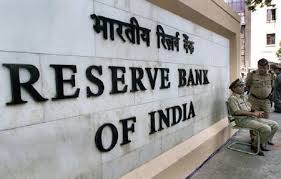Very recently RBI Governor Raghuram Rajan has kept interest rates constant while decreasing Statuary Liquidity Ratio (SLR) to 22 per cent. As Urjit Patel Committee report has said in their report that inflation targeting should be the first priority of central bank. However, RBI has been very proactive in its approach. The legacy initiated by former RBI Governor D. Subbarao is still continuing. The need of the hour is to reexamine the possible solution for controlling Inflation that have been out of control for central bank. 2010 nobel prize winner in economics has done good work which in brief concludes that the impact of policy changes is realized after some time lag. This has to be taken in Indian case as interest rates have been very higher compared to her counterpart in other emerging economies. This has serious implications for economy. Not only higher interest rates are a cost on profitability of corporates but planned investment is also postponed in event of bleak profit anticipated. When there is decline in investment, then fewer projects are materialized and fewer jobs are created. For a country like India that has entered demographic dividend phase, it would be very bad if the youth entering workforce do not get jobs. Engineers after spending lakhs of bucks are underemployed barring a few passing from elite institutions like IITs and NITs. This slowdown is captured by GDP data also. At 5 per cent level we are at the bottom.
With the change of guard at the helm, global investors have been flooding the market with capital. The expectations are huge this time and they have been in wait and watch mode and after the election results were out they panicked and we saw explosion in share market that has broken all past records.
How can RBI participate in India’s development story makes a point. There are many countries that have made financial inclusion a basic right while more than half Indians still lack access to basic banking facilities. The impact of hike in interest rates would be very small in event of undeveloped financial market. This is the reason even after several rounds of increasing interest rates it still remains out of control. To put it simply the impact of transmission of policy rates on price rise has been far below expectation. Now if we examine the composition of consumer price inflation it becomes crystal clear that it is led by prices of food commodities that fluctuate round the year and for the past few years have been elevating consistently. New strategy has to be devised to fight Inflation to bring respite to common man. Central govt. and state govt. have to lead from the front in this case. Many plans have been discussed in recent budget for the supply chain management. In India, more than 40 per cent fruits and vegetables gets spoiled before they reach ultimate consumer. If we can store these perishable commodities in cold storage, then we can realize incremental supply in market of these commodities and price will come down.
The most severe impact of inflation lies on bottom of the population who see their real income declining. In event of no increase in real income they shift their consumption to fewer commodities. A section of population decrease food expenditure that has serious impact on their nutritional status. Although there are many entitlement schemes in place but to maintain a balanced diet, one has to eat many other commodities. When the price of such essential commodities increases then it is obvious then children, women especially the most vulnerable group would have to satisfy with fewer quality nutrition. In long term, it would be a tax on their future potential.
RBI has to be very careful in deciding interest rates. The priority of central bank is not only to achieve price stability but also contribute in the growth and development of nation economy. The most pressing challenge is to create good quality jobs to youths who are entering in huge numbers. Many have spent a huge chunk of parental income and wealth expecting higher income. But to regret this is not happening in most of the cases.
A decrease in interest rates would bring the cost of borrowing down. Corporates would be incentivized to invest more and more jobs would be created. Those sitting at the helm must understand this and not fall prey to the algorithm of economics that dictates to respond to some data only. I hope in coming days policymakers must understand this and more long term measure are adopted that would bring cheers to everybody and development with dignity becomes a benchmark.

